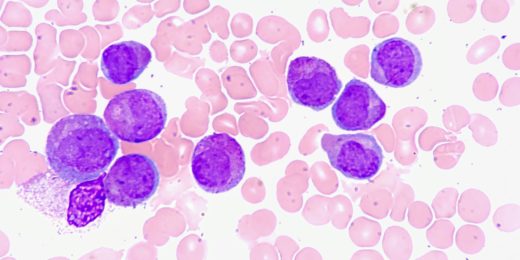Stanford Medicine researchers found that, based on genetic makeup, 99.5% of people are likely to have an atypical response to at least one drug.
Category: Precision Health
Tiny bits of RNA give window into adult congenital heart disease in Stanford study
MicroRNA in the blood holds clues to heart problems in adults born with tetralogy of Fallot, a type of congenital heart disease, Stanford research shows.
How does 2020 Nobel Prize-winning CRISPR technology work?
The 2020 Nobel Prize in Chemistry recognized the scientists who developed the CRISPR-Cas9 gene-editing technology. Here's how it's changing medicine.
AI tool created to guide colorectal cancer care with more precision
Scientists have created an AI tool to help doctors more precisely choose colorectal cancer treatments that will work best on individual patients.
Souped-up smartphones can gauge intoxication by measuring walk
A smartphone add-on, devised by an emergency medicine physician now at Stanford, detected a drunken stagger, through side-to-side sway, with 90% accuracy.
How a smartwatch can detect drug levels in the body
Researchers have developed a sensor system on a smartwatch that uses sweat to determine the level of acetaminophen in the body.
Cell growth clue could lead to new breast cancer treatments
Stanford stem cell biologists have found a way to block a signal that causes growth of breast cancer cells, opening potential for new treatments.
Improving cancer prognoses: A radio show
A Stanford oncologist discusses how to improve cancer diagnosis and treatment, including using predictive modeling, liquid biopsies and immunotherapy.
When AI is watching patient care: Ethics to consider
Ethical and legal issues accompany the potential benefits of using computer vision-based ambient intelligence in health care.
Stanford Medicine magazine explores the new Stanford Hospital
The new Stanford Hospital is a high-tech place of healing for patients and families, and a place of innovation and well-being for employees and clinicians.
Computer models show promise for personalizing chemotherapy
A Stanford biomedical data scientist discusses how computational modeling of big data could help improve personalized chemotherapy selection in the future.
Patient-provider relationship drives Humanwide project design
Inspired by personal experience, Stanford Medicine's Megan Mahoney devised a primary care pilot to center around patients and their goals.
Stanford Medicine magazine spotlights initiatives that add value to health care
The new Stanford Medicine magazine examines value, with a focus on disease detection, patient-doctor relationships and the latest health technology.
A closer look at the ‘proactive, precise and personalized care’ of Humanwide
In initial feedback, patients and providers favored the precision health approach to primary care demonstrated in Stanford Medicine's Humanwide pilot.
Redrawing the frontiers of population health and medicine
On LinkedIn, Dean Lloyd Minor outlines how precision health that takes into account environmental factors can improve well-being throughout a population.
Avoiding health surprises through Humanwide
After receiving a donated kidney from his father, a patient strives to stay healthy by monitoring key data with a Stanford Medicine Humanwide team.

















